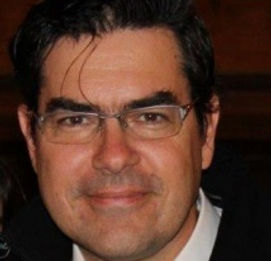PLANT MOLECULAR GENETICS AND DEVELOPMENTAL BIOLOGY
The Hepworth Lab
McCULLY LECTURES
Carleton University is proud to have an annual lecture series in honour of plant scientist, Dr. Margaret E. McCully, who was an extraordinary teacher and faculty member in the Carleton Biology Department for close to 35 years. Following her retirement in 1999, she moved to Australia where she continued her work. She was affiliated with CSIRO and is now an honorary research fellow at the Australian National University in Canberra. Margaret is internationally recognized for her pioneering work in microscopy and root anatomy and physiology. The annual McCully lecture in Plant Biology is held in each year in April. The theme of this lecture series is “from the lab to the field”. For more information, please contact shelley.hepworth@carleton.ca.

Reprogramming root cells for arbuscular mycorrhizal symbiosis
April 26, 2019
Dr. Maria Harrison is a William H. Crocker Professor at the Boyce Thompson Intitute for Plant Research at Cornell University. Her pioneering work examines how plant and fungi form symbiotic relationships to trade crucial nutrients that promote the survival of both species. She is especially well known for her work on arbuscular mycorrhizal soil fungi, which adopt a relationship with the vast majority of crop plants. Her research paves the way for deployment of symbiosis in the field for more sustainable agriculture.
Modifying the plant cell wall from the inside out
April 26, 2024
Dr. Heather McFarlane is an Assistant Professor and Canada Research Chair in Plant Cell Biology at the University of Toronto. Her ground breaking reserach uses advanced microscopy tools to investigate mechanisms of cell wall synthesis, secretio, signaling and remodelling with a view to improving plant biomass for food, materials, and energy.
Exploring deep evolutionary patterns and processes in eukaryotes through the lens of genomics
April 21, 2023
Dr. Claudio Slamovits, Professor of Biochemistry and Molecular Biology at Dalhousie University, is a fellow of the Canadian Institute for Advanced Research, Program in Integrated Microbial Diversitiy. His fascinating research examines the molecular evolution and cell biology of single-cell eukaryotes, exposing the far reaches of the green tree of life.
Understanding complex trait evolution: A case study with C4 photosynthesis
April 8, 2022
Dr. Rowan Sage is a Professor of Ecology and Evolution at the University of Toronto. His work addresses how plants adapt to climate change. A well known aspect of his work is the evolution of C4 photosynthesis. Understanding the evolution of this trait provides a road map for the engineering of highly productive crops that are resilient to climate change.
Redefining the metabolite-rich trichomes of Cannabis sativa flowers
April 27, 2018
Dr. Lacey Samuels is a Botany Professor at the University of British Columbia. She is a celebrated cell biologist whose innovative work pushes boundaries in understanding how plant cells synthesize and secrete cell walls and surface coatings. Her recent work examines the secretory trichomes on Cannabis flowers, which harbour a vast array of metabolites whose functions we are only starting to understand.
Why do legume root nodules evolve hydrogen gas?
March 24, 2017
Dr. Zhongmin Dong is a Professor in the Biology Department at St. Mary's University in Halifax. His research focusses on inter relationships between root systems and rhizophere organisms. The long term goal of this work is to find environmentally friendly alternatives to chemical fertilizers in agriculture.
Feeding hungry plants: purple acid phosphatases play a pivital role in phosphorus nutrition
April 14, 2016
Dr. William Plaxton is a Biology Professor at Queen's University and holds a University Chair in Plant Biochemistry. Widely considered as one of the finest plant biochemists in Canada, his research focuses on understanding the organization and control of sugar metabolism under phosphate starvation with the goal of boosting crop productivity.
From the lab to the field: research for sustainable agriculture
April 17, 2015
Dr. Frederique Guinel is a Professor in the Biology Department at Wilfrid Laurier University. Dr. McCully's very first Ph.D. student, she has held many leadership roles in Canada's plant science community, including as part-president of the Canadian Botanical Association. Her research focuses on the development and hormonal regulation of root symbiosis with soil microorganisms.
Exploring the biology and biotechnology of lignin
April 25, 2025
Dr. Yaseen Mottiar is an Assistant Professor in Department of Biology at the University of Ottawa. He studies lignin from both basic science and applied viewponts, using a variety of molecular biology, bioimaging, and analytical chemistry tools. His work aims to elucidate the mechanisms driving cell wall formation and lignification in diverse taxa, and to use these insights to improve the performance of plants in industry and agriculture.








